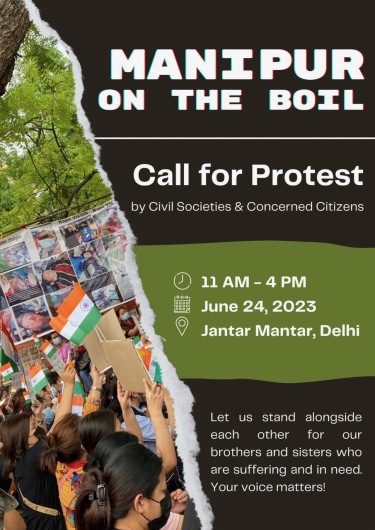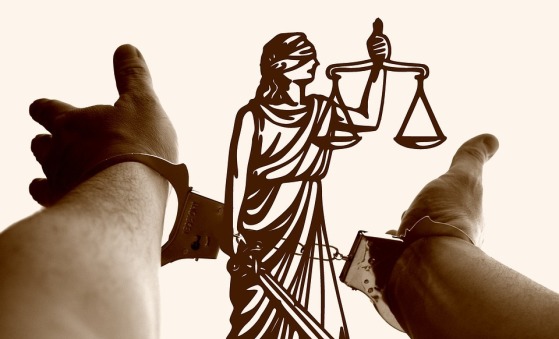
Prime Minister Narendra Modi’s trip to the US was overshadowed by his apparent lack of concern for the ongoing ethnic and religious violence in Manipur that has stretched for almost two months now and has resulted in the death of at least 120 people, mostly Christians, not to mention the internal displacement of over 60,000 people and the burning of hundreds of churches.
Modi has been conspicuous by his silence on the issue despite appeals from the Christian community, social and political commentators, and opposition leaders.
Ahead of his visit to the US, 75 Democratic lawmakers penned a letter to President Joe Biden calling for a frank discussion on human rights and press freedom in India.
They emphasised the importance of applying shared democratic values to friends and allies, while highlighting reports of shrinking political space, growing religious intolerance, and worrying curbs on civil society organisations and journalists in India.
The letter urged President Biden to raise these concerns during his meeting with Prime Minister Modi to foster a successful and long-lasting relationship between the two countries.
The letter also pointed to a number of independent reports raising concerns about developments in India.
The State Department's 2022 Country Report on Human Rights Practices in India, which documents a tightening of political rights and expression, was among the reports highlighted
Another was the State Department's 2022 Report on International Religious Freedom in India, which notes an increase in religious intolerance and religiously motivated violence towards minorities.
Assessments by Reporters Without Borders further indicate a decline in press freedom rankings for India, while Access Now reports India's highest number of internet shutdowns for the fifth consecutive year.
Back home in India, a coalition of political leaders from different parties expressed their disappointment that Modi left for the US on June 20 after ignoring their request for a meeting to discuss the ongoing conflict in Manipur.
At a press conference, the leaders said that the PM's failure to grant them time and instead depart for the US reflected a lack of concern for the crisis in Manipur.
O. Ibobi Singh, a senior Congress leader and former Manipur chief minister (a rank equivalent to the Governor of a state in the United States), criticised the PM's actions.
"We feel neglected in our small state. As citizens of this country, we have been waiting here to meet the Hon'ble PM since June 10th, hoping that he would spare us at least 5-10 minutes. Our intention is not to beg for something from the PM. We are not beggars, even though we come from a small state," he stated.
He further emphasised that the situation in Manipur should be recognized as a national issue and urged the government to acknowledge that the state is an integral part of India.
Also expressing their frustration with the Indian Prime Minister were the representatives of Imphal’s women’s group, Ema Keithel, popularly known as Mothers' Market, who sat in protest on Jantar Mantar Road in New Delhi on June 19.
The Ema Keithel is mainly composed of members of the predominantly Hindu Meitei community.They allege that Modi’s lack of intervention in the ongoing clashes has left them feeling neglected.
They have appealed to the central government for the restoration of peace in Manipur and the preservation of the state's integrity.
In another development, the Catholic Bishops Conference of India (CBCI) is demanding that July 2 be observed as a special "Sunday for Peace and Prayer" dedicated to the suffering people of Manipur.
The CBCI's call emphasised the need for solidarity, prayerful support, and concrete actions to address the challenges faced by the people of Manipur.
It is encouraging parishes, institutions, and religious communities across the country to join in observing the day of prayer
To make the day more significant, the CBCI has suggested several actions:
Pray together: Set aside time before and during Mass to pray for the suffering people of Manipur and the restoration of peace.
Promote solidarity: Organise gestures of solidarity such as candlelit processions or peace rallies. These activities will allow people to come together, both in spirit and in action, to stand with their suffering brethren in Manipur and raise awareness about the serious situation in the state.
Collaborate for impact: Join hands with like-minded individuals and organisations in working for peace and harmony. Advocate for change: Encourage associations, movements, and non-governmental organisations (NGOs) to take their concerns to the Central Government, specifically, the alarming disregard for the principles enshrined in the Constitution that is being witnessed in the region.
Pledge for peace: Organise a Pledge for Peace in all educational institutions to serve as a recommitment to promoting peace in the country and individual states.
Show hospitality: Express heartfelt concern and goodwill towards migrant people but particularly those coming from Manipur. Whenever possible, generously accommodate students and individuals from Manipur in hostels and educational institutions, providing them with a supportive and welcoming environment.
The CBCI stated that by observing this day and implementing the suggested initiatives, individuals, institutions, and communities can contribute to building a more harmonious and peaceful society in Manipur and throughout the country.
Meanwhile in New Delhi, civil society organisations and concerned citizens of India called for a five-hour protest titled – “Manipur On The Boil” at Jantar Mantar, a popular protest venue in New Delhi, on June 24.
One of the organisers, Minakshi Singh, who belongs to the group Unity in Compassion (UIC), told The Christian Post that over 40 organisations and individuals endorsed the protest.
Speaking ahead of the protest, he said, “We are gathering to protest the genocide in Manipur. Through our protest, we call on the government of the day to ensure the right of every citizen to live as guaranteed under the constitution of India.”




